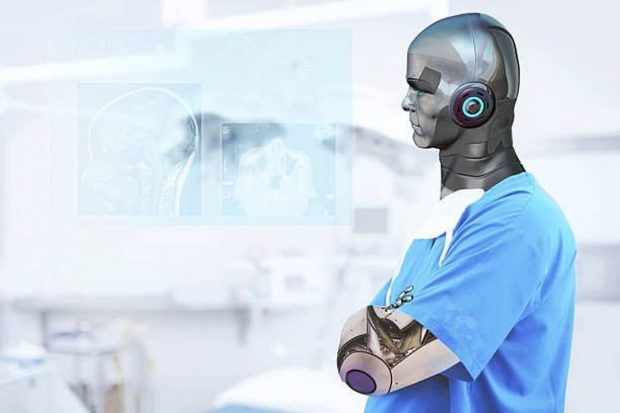The Combination Of Artificial Intelligence And Medicine Can Be Fascinating. Nyutron’s Ai Claims To Be Able To Outsmart Doctors And Tell You When Patients Will Die And Their Chances Of Survival.
The issue of death has always been controversial for humans, and many would like to know when they will leave this world. Throughout the centuries, many people have claimed to be able to predict the time of death; But none of them have succeeded.
The extremely high accuracy of NYUTron’s artificial intelligence in predicting the time of death of patients

Also, medical science has made significant progress during the last two centuries and has extended the average human life by treating many deadly diseases. However, even the most skilled doctors cannot accurately predict an individual’s chances of survival. However, NYUTron’s AI claims to predict when patients will die and their chances of survival.
This different artificial intelligence has been developed by the New York University School of Medicine, and it has achieved extraordinary performance in a short period. Initial tests have shown that NYUTon’s artificial intelligence can accurately read doctors’ notes about patients and then report the likelihood of death, re-hospitalization, and other health-related conditions based on that.
The mentioned software is now used in all hospitals affiliated with the New York University School of Medicine.
However, the development team hopes to see it used in all hospitals worldwide as a medical standard in the future. Eric Oermann, a neurosurgeon and computer scientist at New York University, said there had been predictive models in medical science before.
But working with these models was difficult due to the challenges associated with data categorization and formatting. They considered that doctors often fully describe the patient’s condition in their notes and record the individual’s symptoms and reactions. This also caused them to think of developing a predictive model.
NYUTron’s AI is a vast language model, and the researchers used the health notes of 387,000 patients to train it. This process lasted from 2011 to 2020, and New York’s Langone Hospital played an active role. Physicians’ notes included many items, including progress and radiology reports, discharge orders, and post-discharge recommendations.
Finally, after years of effort, a massive database with 4.1 billion words was formed so that NYUTron’s artificial intelligence could comment on the time of death of patients and their chances of survival based on the received data. Of course, artificial intelligence faces challenges in this direction as well. For example, each doctor has their language and sometimes uses special terms and abbreviations.
However, with all this, NYUTron’s artificial intelligence left a stunning performance.
NYUTron was able to correctly predict the death of patients in the hospital in 95% of cases, even before discharge, and showed an accuracy of 80% regarding re-admission of people up to 30 days after release. In addition to these, New York University’s artificial intelligence was able to accurately predict the exact length of stay of 79% of patients in the hospital.
These are not the only achievements of NYUTron. In 89% of cases, the artificial intelligence understood well that the patient’s insurance coverage would not be enough to treat his illness. In 89% of the cases, it correctly reported the presence of another disease in addition to the primary disease in the person. Thus, the model prepared by New York University performs better than many doctors and can serve better than all current computer models.
Now that NYUTron’s artificial intelligence has demonstrated its high accuracy in predicting the time of death of patients and their health status, an important question arises. Can artificial intelligence replace doctors? Interestingly, the development team pitted the AI against one of New York University’s most experienced doctors and ultimately found that the doctor’s predictions were more accurate.
Of course, Oermann also emphasized that the doctor mentioned has extraordinary abilities and is not human.
However, artificial intelligence can never replace the doctor-patient relationship. Instead, it will be more like a tool in the hands of doctors so that they can make better decisions regarding their patients and consider all aspects.
It goes without saying that in many regions of the world, the number of doctors does not match the number of patients, and in some areas, there is no medicine. Although NYUTron’s AI also needs accurate data to make predictions, there is a possibility that it can help to improve the health status of people in disadvantaged areas in the future.